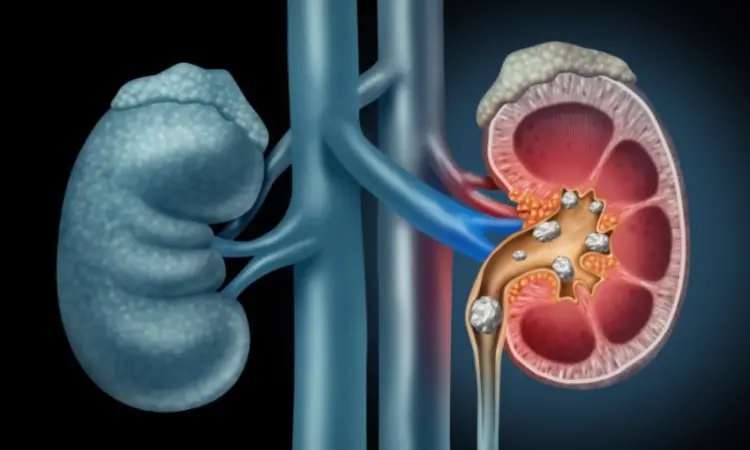- Home
- Medical news & Guidelines
- Anesthesiology
- Cardiology and CTVS
- Critical Care
- Dentistry
- Dermatology
- Diabetes and Endocrinology
- ENT
- Gastroenterology
- Medicine
- Nephrology
- Neurology
- Obstretics-Gynaecology
- Oncology
- Ophthalmology
- Orthopaedics
- Pediatrics-Neonatology
- Psychiatry
- Pulmonology
- Radiology
- Surgery
- Urology
- Laboratory Medicine
- Diet
- Nursing
- Paramedical
- Physiotherapy
- Health news
- Fact Check
- Bone Health Fact Check
- Brain Health Fact Check
- Cancer Related Fact Check
- Child Care Fact Check
- Dental and oral health fact check
- Diabetes and metabolic health fact check
- Diet and Nutrition Fact Check
- Eye and ENT Care Fact Check
- Fitness fact check
- Gut health fact check
- Heart health fact check
- Kidney health fact check
- Medical education fact check
- Men's health fact check
- Respiratory fact check
- Skin and hair care fact check
- Vaccine and Immunization fact check
- Women's health fact check
- AYUSH
- State News
- Andaman and Nicobar Islands
- Andhra Pradesh
- Arunachal Pradesh
- Assam
- Bihar
- Chandigarh
- Chattisgarh
- Dadra and Nagar Haveli
- Daman and Diu
- Delhi
- Goa
- Gujarat
- Haryana
- Himachal Pradesh
- Jammu & Kashmir
- Jharkhand
- Karnataka
- Kerala
- Ladakh
- Lakshadweep
- Madhya Pradesh
- Maharashtra
- Manipur
- Meghalaya
- Mizoram
- Nagaland
- Odisha
- Puducherry
- Punjab
- Rajasthan
- Sikkim
- Tamil Nadu
- Telangana
- Tripura
- Uttar Pradesh
- Uttrakhand
- West Bengal
- Medical Education
- Industry
Urolithiasis Directly Linked to Osteoporosis, finds Study

Researchers have found that urolithiasis, commonly known as kidney stones, has a direct causal relationship with osteoporosis (OP), independent of environmental factors. A recent study was published in The Journal of Clinical Endocrinology and Metabolism by Zijie Z. and colleagues. This study utilized Mendelian randomization (MR) and other genetic analyses to uncover the biological mechanisms linking these two conditions, emphasizing the importance of regular OP screening for patients with urolithiasis.
Although there has been an established association between urolithiasis and osteoporosis, its mechanisms are not very clear. Most of the studies focused on environmental factors, like diet. The question this study asks is whether urolithiasis itself can induce OP. The researchers use the data from the Japan BioBank to comprehensively assess and find possible direct links.
The study utilized 6,638 urolithiasis cases and 7,788 osteoporosis cases from the BioBank Japan. Mendelian randomization and genetic correlation analysis, colocalization analysis, and pathway analysis were used to probe for causal relationships between urolithiasis and OP. Instrumental variables of urolithiasis were selected for use in MR analysis in a bid to guarantee robustness; these are ten in number.
• The analysis identified a positive association of genetically predicted urolithiasis with osteoporosis.
• There were direct effects of the exposures, even in models that adjusted for factors associated with osteoporosis.
• The reverse analysis did not find any significant causal effect of genetically predicted osteoporosis on urolithiasis.
• Although genetic correlation analysis and colocalization results were inconclusive, mediation analysis estimated glomerular filtration rate to significantly mediate between these two conditions.
• Co-factor investigation, in particular, emphasized cardiovascular factors as a common risk to both urolithiasis and osteoporosis.
• Bioanalysis implicated cytokine, metabolic, and calcium-signaling pathways, mechanistically linking those two conditions; BCAS3, DGKH, TBX2, and TBX2-AS1 as potential causal genes.
These findings define the direct, causal relationship between urolithiasis and osteoporosis and underscore their consideration together in a clinical setting. The results from this study indicated that the risk of osteoporosis for those with urolithiasis could not be attributed to common environmental causes alone but was influenced by direct genetic and biological mechanisms.
Awareness about the increased risk for osteoporosis in such patients with urolithiasis needs to be imbibed, and regular screenings for its early detection and management are recommended. Such identification of important genetic ways and potential causal genes provides a base for targeted treatments and preventive strategies.
This is the first direct evidence for the causal association between urolithiasis and osteoporosis, independent of environmental factors. Patients diagnosed with urolithiasis should be aware of the potential risk for osteoporosis and have regular screening. Further studies should explain the biological mechanisms by which this association occurs to develop therapies against this major health problem.
Reference:
Zhou, Z., Xu, H., Fu, J., Wei, P., & Mei, J. (2024). Urolithiasis causes osteoporosis in Asians: Genetic evidence from Mendelian randomization and pathway analysis. The Journal of Clinical Endocrinology and Metabolism. https://doi.org/10.1210/clinem/dgae461
Dr Riya Dave has completed dentistry from Gujarat University in 2022. She is a dentist and accomplished medical and scientific writer known for her commitment to bridging the gap between clinical expertise and accessible healthcare information. She has been actively involved in writing blogs related to health and wellness.
Dr Kamal Kant Kohli-MBBS, DTCD- a chest specialist with more than 30 years of practice and a flair for writing clinical articles, Dr Kamal Kant Kohli joined Medical Dialogues as a Chief Editor of Medical News. Besides writing articles, as an editor, he proofreads and verifies all the medical content published on Medical Dialogues including those coming from journals, studies,medical conferences,guidelines etc. Email: drkohli@medicaldialogues.in. Contact no. 011-43720751


